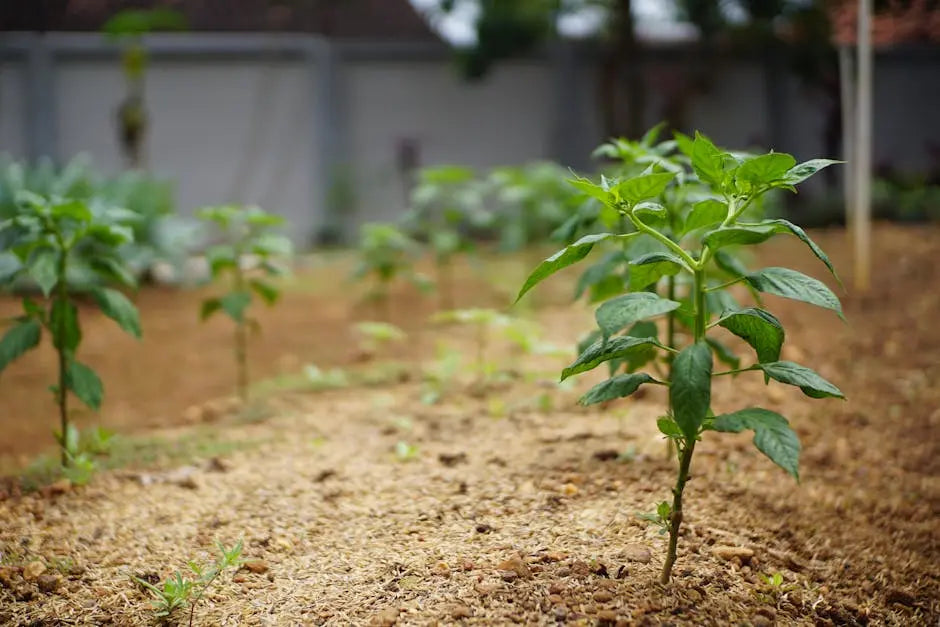Are you curious about organic gardening but unsure if it’s worth it? Switching to organic seed collections can be a transformative decision for both your garden and your overall lifestyle. From environmental benefits to better plant health, there are numerous reasons to make the switch. Let’s explore some compelling reasons why organic seeds deserve a place in your garden!

1. Enhanced Flavor and Nutritional Value
Organic seeds lead to superior flavor and higher nutritional content in your fruits and vegetables, making your meals not just healthier but also more delicious. When you bite into a tomato grown from organic seeds, you can taste the difference; it’s like a burst of sunshine in your mouth. Studies suggest that organic produce often contains higher levels of antioxidants, vitamins, and minerals, elevating your meals from ordinary to extraordinary.
Moreover, the better taste of organic food can encourage people to eat more fruits and vegetables, which is a win-win for health and well-being. Imagine hosting a dinner party and serving a salad that showcases the wonderful flavors of organic greens. Your guests will not only appreciate the taste but also the wholesome story behind how it was grown!
2. Support for Biodiversity
Choosing organic ensures your garden supports diverse plant species, which is crucial for maintaining ecosystem balance and encouraging wildlife. Biodiversity in your garden leads to a more resilient environment; different plants attract various pollinators and beneficial insects, creating a thriving habitat. By opting for organic seed collections, you’re not only nurturing a variety of plants but also providing a safe haven for creatures that play pivotal roles in our ecosystem.
This focus on biodiversity also helps combat the issues brought about by monoculture, where a single crop dominates, leaving ecosystems vulnerable to diseases and pests. Supporting a more diverse ecosystem can be both rewarding and inspiring, as it showcases the intricate relationships between plants, animals, and the soil they grow in.
3. Improved Soil Health
Organic farming practices focus on building and maintaining healthy soil, which is essential for robust plant growth and sustainability. Healthy soil is filled with vital microorganisms and nutrients that contribute to healthier plants and, in turn, better yields. When you plant organic seeds, you’re starting with the foundation of life that will carry your garden forward through every season.
Additionally, the practices associated with organic gardening—like crop rotation, composting, and using cover crops—not only enrich the soil but also reduce erosion and pollution, benefiting the environment. The importance of soil health cannot be overstated; it serves as a living system that thrives on biodiversity and organic matter. Opting for organic seeds enhances this living system and leads you toward a more holistic approach to gardening.
4. Safe for Pollinators
Organic seeds are often grown without harmful chemicals, making your garden a safe haven for bees and other essential pollinators. Pollinators are crucial for food production, with many vegetables and fruits relying on them to reproduce. When you create a garden that invites these beneficial creatures, you’re not just enjoying a beautiful space; you’re actively participating in the survival of our planet’s food systems.
Imagine a garden buzzing with life, where butterflies flutter and bees busily gather nectar. By switching to organic seed collections, you’re fostering this delightful environment. Protecting pollinators contributes to a healthy ecosystem, enabling plants to thrive naturally.
5. Reduced Environmental Impact
By choosing organic seeds, you are helping to reduce pollution and chemical runoff, contributing to a healthier environment for future generations. The synthetic fertilizers and pesticides often associated with conventional gardening can leach into water systems and impact wildlife. In contrast, organic gardening practices prioritize sustainability and ecological balance, ensuring that your gardening footprint is light.
Plus, the materials used in organic farming practices—like natural fertilizers and crop rotation—work to enhance the soil and air quality rather than degrade them. This commitment not only benefits your garden but extends to the planet as a whole, affirming that with each seed you plant, you’re making a positive impact.
6. Better Pest Resistance
Plants grown from organic seeds are often more resilient to pests and diseases, leading to a more successful harvest without the need for synthetic pesticides. This natural resistance is built through the principles of organic gardening, which emphasizes healthy soil and biodiversity. When plants grow in harmony with their environment, they develop the strength to fend off potential ailments.
Consequently, this leads to a more sustainable approach to gardening. Who wouldn’t want a thriving garden that flourishes naturally? The reduction of synthetic inputs means your garden is not only healthier but also safer for pets and children. You can enjoy the fruits of your labor with peace of mind, knowing that your plants are free from harmful chemicals.
7. Connection to Nature
Gardening with organic seeds fosters a deeper connection to the earth and nature, allowing you to appreciate the processes of growth and sustainability. The tactile experience of planting seeds, nurturing them, and watching them bloom is immensely rewarding. It’s not just about cultivating plants; it’s about cultivating a relationship with the natural world around you.
This connection to nature can also enhance your mental well-being. Spending time outdoors and interacting with plants has been shown to reduce stress, boost mood, and encourage mindfulness. So, as you tend to your organic garden, you’re not only growing food but also nurturing your own mental health.
8. Encouragement of Local Farming
Choosing organic supports local farmers who practice sustainable methods, boosting the economy and reducing carbon footprint from transportation. By investing in local organic seed collections, you’re essentially voting for a healthier planet while ensuring that your money goes back into your community. This is a fantastic way to connect with your local agriculture and understand the roots behind your food.
Moreover, supporting local farms contributes to a sense of community and promotes a culture of sustainability. As more people adopt organic farming practices, it sets a powerful example for the next generation, creating a cycle of awareness and education about responsible farming.
9. Avoidance of GMOs
Organic seed collections are free from genetically modified organisms, allowing you to enjoy natural genetics that have adapted over time. This not only preserves traditional farming practices but also supports the integrity of seeds that have been cultivated for centuries. With organic seeds, you can trust that you are planting varieties that naturally thrive in your local conditions.
Choosing organic means choosing food that is less likely to compromise your health with unknown alterations. The beauty of organic gardening is simplicity and authenticity, providing you with a closer connection to the food you consume and the land you nurture.
10. Educational Opportunities
Gardening with organic seeds presents wonderful learning opportunities for you and your family, sparking interest in sustainable practices and environmental stewardship. Engaging with the garden can teach valuable lessons about responsibility, patience, and the cycles of nature. It’s an immersive experience that can turn your backyard into a classroom, where the lessons extend to everything from science to ecology.
Whether you’re teaching children about plant life or learning from community workshops, every step of the organic gardening journey opens doors to knowledge. Moreover, sharing these experiences with others fosters a sense of community and connectedness, reminding us of the vital role we all play in nurturing our environment.
11. Financial Savings Over Time
While organic seeds may have a higher upfront cost, the long-term benefits of healthier plants and reduced need for chemicals can lead to significant savings. By investing in quality organic seeds, you reduce the likelihood of losing crops to pests and diseases, which often require expensive interventions.
Additionally, the reliance on natural practices can lessen your need for synthetic fertilizers and pesticides over time. Not only do organic gardeners save money, but they also enjoy the satisfaction of growing their own food while maintaining the integrity of their garden’s ecosystem. As your garden flourishes and requires fewer inputs, the initial investment pays off in more ways than one.
12. Enhanced Community Health
By promoting organic gardening, you contribute to your community’s health as more people adopt healthier eating habits and sustainable lifestyles. When you grow organic foods, you set an example and inspire others to make conscious choices about their food sources. This ripple effect can create a community committed to health and wellness.
Moreover, as more individuals engage in organic gardening, local food systems become stronger, resulting in fresher produce available to everyone. The positive impact of organic gardening not only enhances individual health but uplifts entire communities, encouraging environmental stewardship and promoting a cleaner and greener future.





